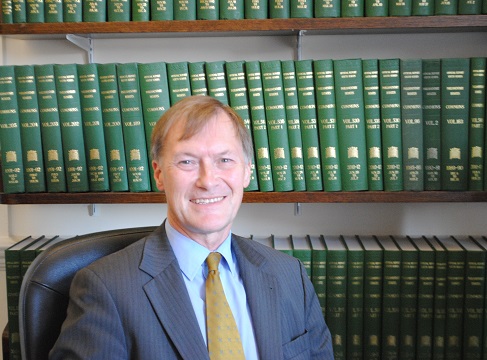
Conservative MP Sir David Amess has died after being stabbed at his constituency surgery in Essex.
Police said a 25-year-old man was arrested on suspicion of murder after the attack at a church in Leigh-on-Sea.
They said they recovered a knife and were not looking for anyone else in connection with the incident.
Prime Minister Boris Johnson said “our hearts are full of shock and sadness” at the loss of “one of the kindest” people in politics.
Sir David, 69, had been an MP since 1983 and was married with five children.
The investigation will be led by the Metropolitan Police’s specialist Counter Terrorism Command, who will determine whether it was a terrorist incident.
Mr Johnson said Sir David had an “outstanding record of passing laws to help the most vulnerable”.
“David was a man who believed passionately in this country and in its future. We’ve lost today a fine public servant and a much-loved friend and colleague,” he said.
Health Secretary Sajid Javid said he was “a great man, a great friend, and a great MP, killed while fulfilling his democratic role”.
Home Secretary Priti Patel said the killing “represents a senseless attack on democracy itself”, adding that “questions are rightly being asked about the safety of our country’s elected representatives”.
Sir David, who represented Southend West, was holding a constituency surgery – where voters can meet their MP and discuss concerns – at Belfairs Methodist Church in Eastwood Road North.
Essex Police Chief Constable Ben-Julian Harrington said they received reports of a stabbing shortly after 12:05 BST and within minutes, officers found Sir David with multiple injuries.
Police and paramedics “worked extremely hard” to save him but he died at the scene, Mr Harrington said.
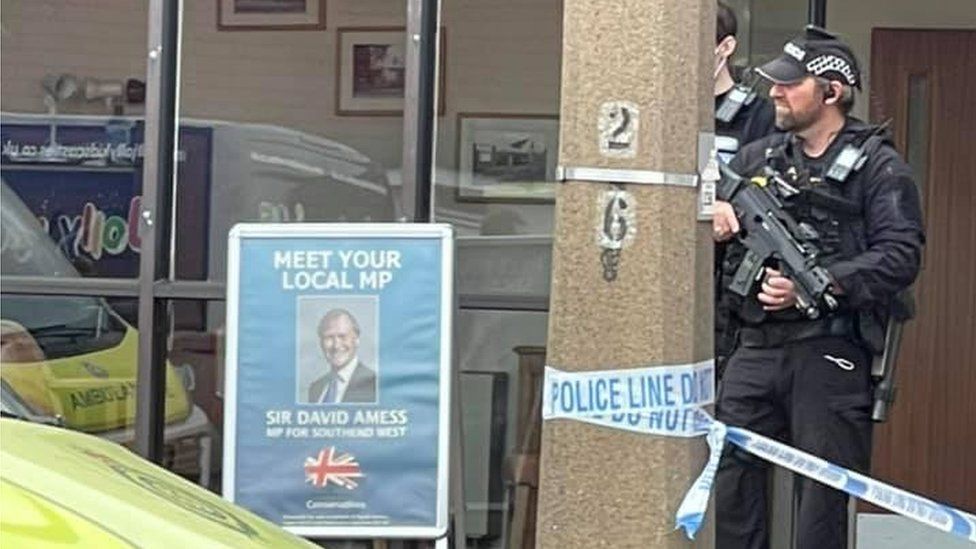
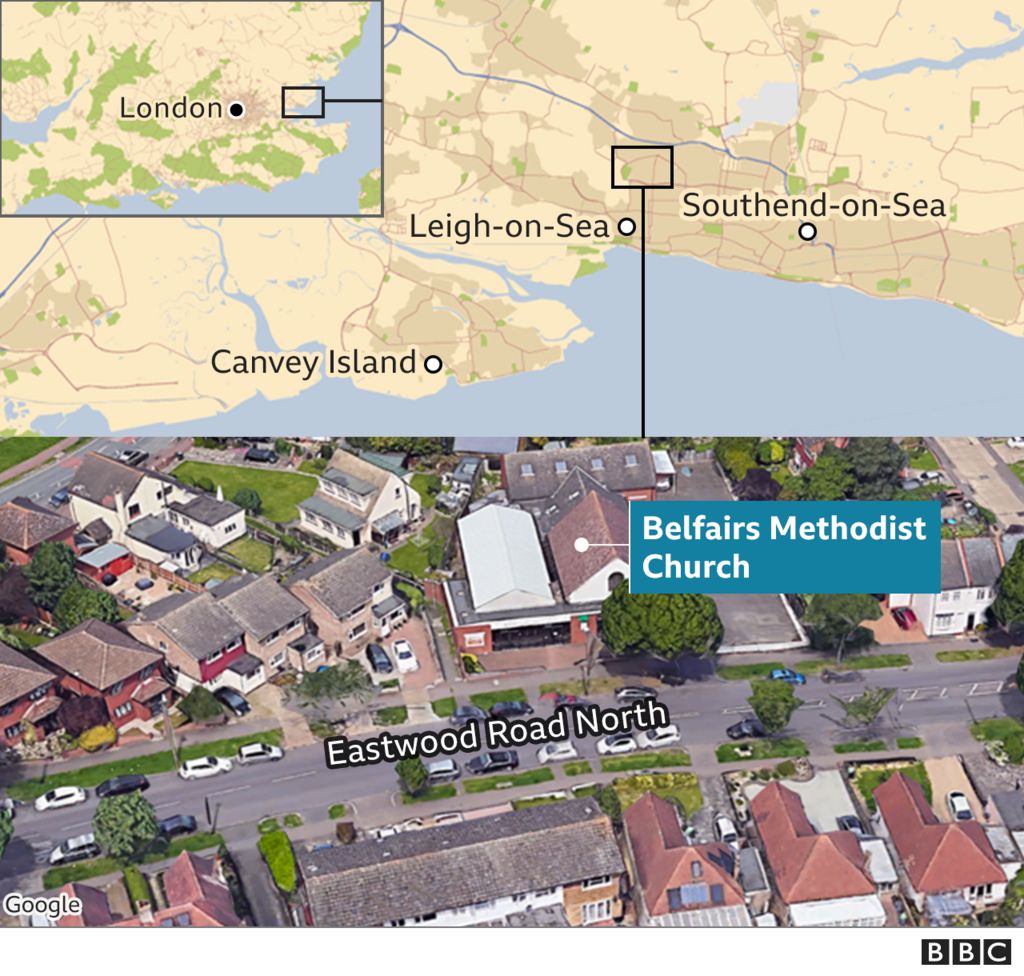
Police have appealed for anyone who saw the attack, or who has footage from CCTV, dash cams or video doorbell to contact them.
Sir David is the second MP to be killed in the past five years, following the murder of Labour MP Jo Cox in 2016.
She was killed outside a library in Birstall, West Yorkshire, where she was due to hold a constituency surgery.
Southend councillor John Lamb told the BBC that Sir David moved his surgeries to different locations around the constituency “to meet the people” and said the attack was “absolutely dreadful”.
“We’ve lost a very good, hard working constituency MP who worked for everyone,” he said.
Father Jeff Woolnough, parish priest at nearby St Peter’s Catholic Church, told the BBC: “Sir David was a great, great man, a good Catholic and a friend to all…
“He’s died doing that, that’s the remarkable thing. He’s died serving the people.”
Another priest, Father Kevin Hale, said there was a “great sense of incredulity” about the attack.
Speaker of the House of Commons Sir Lindsay Hoyle said: “This is an incident that will send shockwaves across the parliamentary community and the whole country.”
He said he was shocked and deeply distressed by the killing of a “lovely man”, and said in the coming days they would need to examine MPs’ security.
Labour leader Sir Keir Starmer said it was a “dark and shocking day”, adding that “we have, heartbreakingly, been here before” with the death of Jo Cox.
“We will show once more that violence, intimidation and threats to our democracy will never prevail over the tireless commitment of public servants simply doing their jobs,” he said.
Who was Sir David Amess?
A Conservative backbencher for nearly forty years, Sir David entered Parliament in 1983 as the MP for Basildon.
He held the seat in 1992, but switched to nearby Southend West at the 1997 election.
Raised as a Roman Catholic, he was known politically as a social conservative and as a prominent campaigner against abortion and on animal welfare issues.
He was also known for his championing of Southend, including a long-running campaign to win city status for the town.
Sir David wrote about the impact on MPs of Jo Cox’s murder and a machete attack on Nigel Jones MP in 2000, which led to the death of his aide Andy Pennington, in his diaries published in November.
Referring to that machete attack, he said: “We all make ourselves readily available to our constituents and are often dealing with members of the public who have mental health problems, it could happen to any of us.”
Liberal Democrat leader Sir Ed Davey said it was “a truly terrible day for British politics but most importantly of all our prayers are with all the people who loved David”.
Flags around Parliament and at 10 Downing Street are being flown at half-mast.
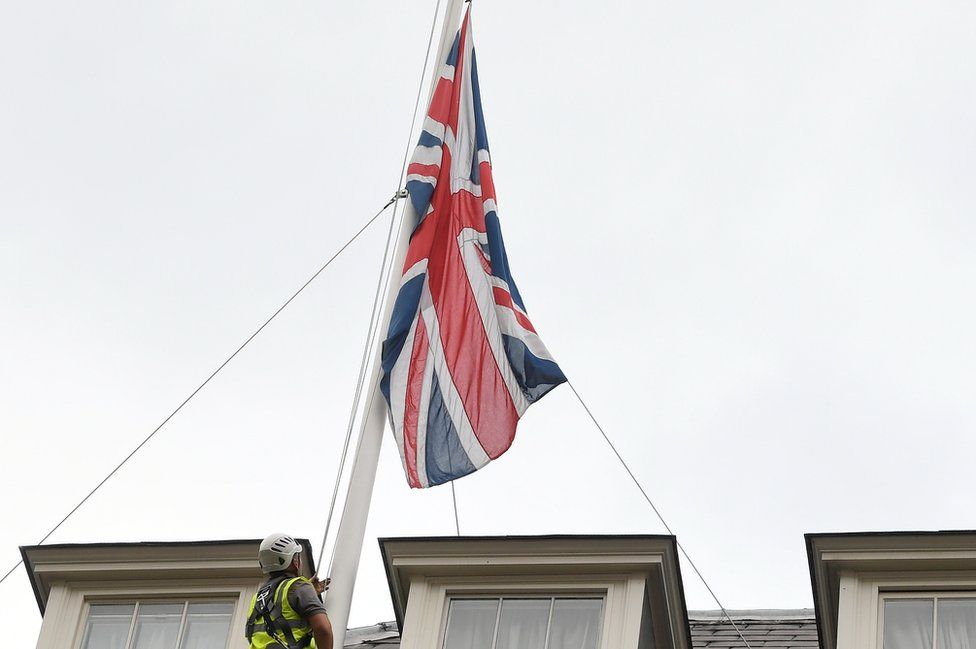
Archbishop of Canterbury Justin Welby said the MP’s death was “agonisingly painful” for those who knew him.
“The murder of an MP, in the course of caring for their constituents, is a deep blow to this country, its citizens and everyone who desires a peaceful and flourishing democracy,” he said.
The Archbishop of Westminster Vincent Nichols, the leader of the Roman Catholic Church in England and Wales, said Sir David “carried out his vocation as a Catholic in public life with generosity and integrity”.
“This horrific attack, as David was undertaking his constituency surgery, is an attack on our democratic process and traditions,” he said.
Flowers were left near the scene of the killing, with tributes describing Sir David as “kind and thoughtful” and “such a gentleman”.
What security do MPs have?
• When they are in Parliament, MPs are well protected by a specialist armed police department called Parliamentary and Diplomatic Protection
• For most MPs there is not the same close protection when they are in their constituencies
• Parliament offers MPs and their staff guidance on security, including tips on how to run a safe constituency surgery, suspicious post and home security
• Parliament will pay for MPs to have some security measures installed – such as security alarms and shutters
• After the murder of Jo Cox in 2016, the spending on MPs’ security rose from £170,576 in 2015/16, to £4.5m two years later
Security concerns routine in 21st Century politics

We expect the MPs we elect to see us in person, not to hide behind Parliament’s ornate gates and wood-panelled walls.
That demand is met gladly by the vast majority of MPs.
But, increasingly, the job has been accompanied by abuse, intimidation – and risk for MPs and their staff.
One member of the cabinet told me today: “Everyone has had a threat… everyone has had frightening moments.”
Dealing with harassment, coping with security concerns and reporting those concerns to the police, is sadly routine in politics in the 21st Century.
It is inevitable in the coming days that there will be calls for a kinder atmosphere at Westminster, and cooler heads in real life, and online.
It is not, however, inevitable that anything at all will change.
Source: bbc.co.uk



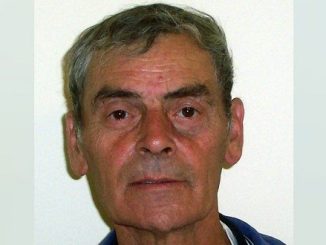
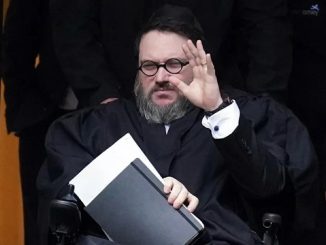
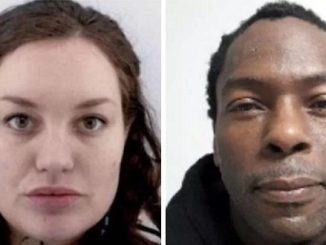
Be the first to comment